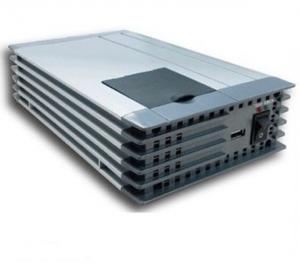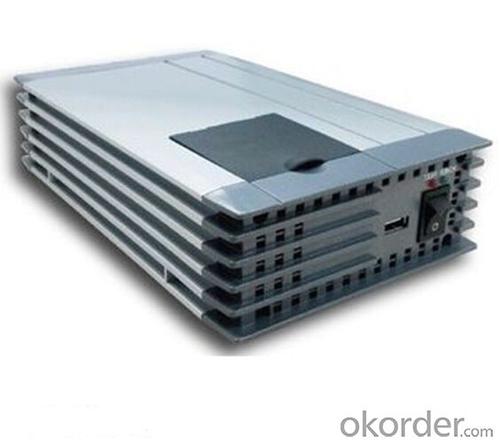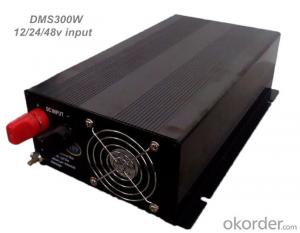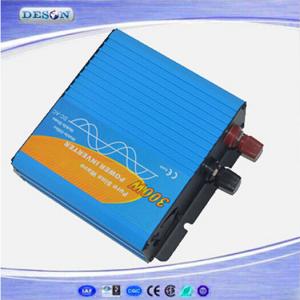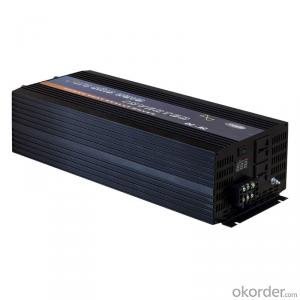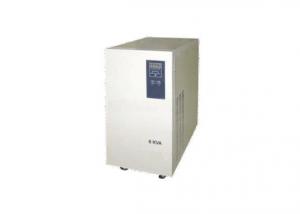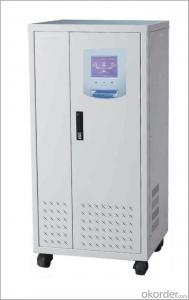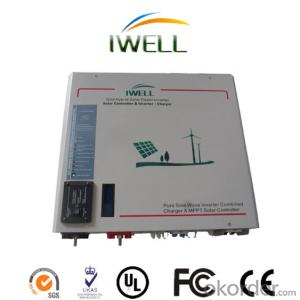300 Watt Pure Sine Wave Solar Inverter 350Watt
- Loading Port:
- China main port
- Payment Terms:
- TT or LC
- Min Order Qty:
- 150000 watt
- Supply Capability:
- 3000000 watt/month
OKorder Service Pledge
OKorder Financial Service
You Might Also Like
1. Structure of Pure Sine Wave Photovoltaic Inverter 350Watt
ParaWatt Series inverter is a leading product in the industry, which has high cost performance. LED indicating lights can work under -25°
C ambient temperature.
Advance circuit design and high standard choice of components maximized its adaptability to inductive and capacitive loads. ParaWatt series
inverter can be used in cars, yachts and solar systems.
The superior performance and reliable quality makes ParaWatt series inverter the best choice for your requirements.
2. Main Features of Pure Sine Wave Photovoltaic Inverter 350Watt
• High efficiency 88%~89%
• Input & output fully isolation design
• THD <3%
• High surge capable of starting motor load
• EMC, multi-protection
• Temperature controlled cooling fan
• Ultra-compact design, low weight
•Brackets can be detachable and mounted; suit for different environments
• Output connector is designed on the top of chassis, suit for all kinds of connection modes
• USB interface 5V/12V
3. Pure Sine Wave Photovoltaic Inverter 350Watt Images
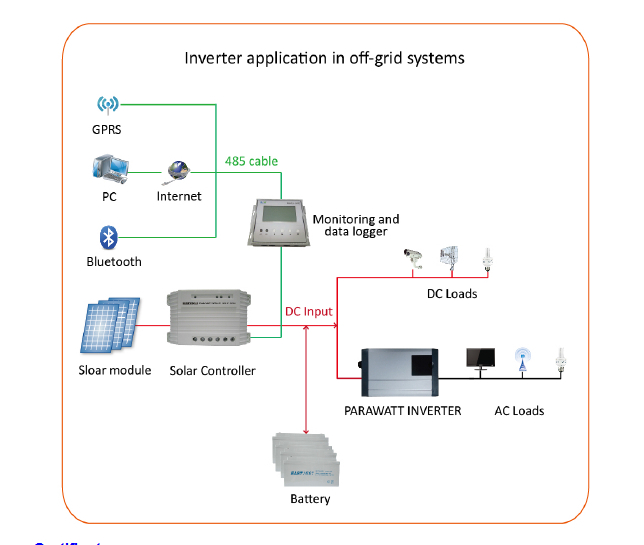
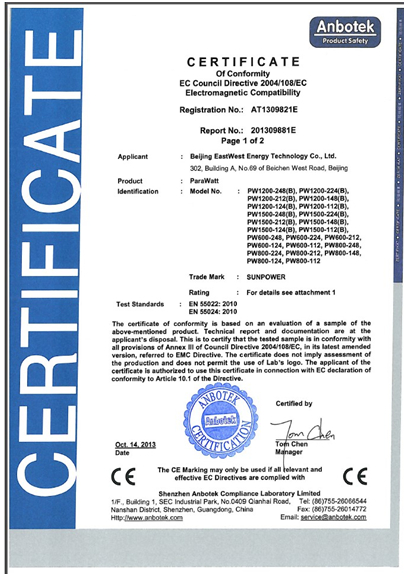
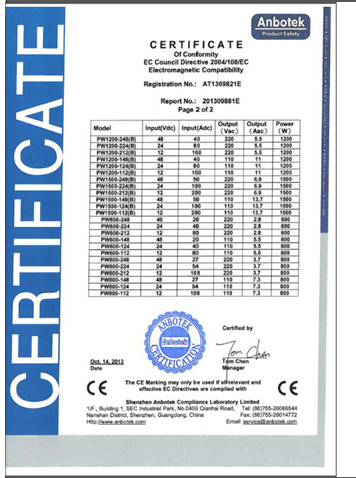
4. Pure Sine Wave Photovoltaic Inverter 350Watt Specification
窗体顶端 DC input voltage 窗体底端 | 12V | 24V |
Low voltage shut | 10.5±0.3VDC | 21.0±0.3VDC |
Low voltage resume | 12.0±0.3VDC | 24.0±0.3VDC |
High voltage shut | 15.0±0.5VDC | 30.0±0.5VDC |
High voltage resume | 14.5VDC | 29.0VDC |
Auto resume | Yes | |
Auto Protection | Over load, Over voltage, Low voltage, Over temperature, | |
Short circuit | ||
Cooling | Temperature and loading controlled cooling fan 窗体底端 | |
5. FAQ of Pure Sine Wave Photovoltaic Inverter 350Watt
Q1:Can we visit your factory?
A1:Sure,welcome at any time,seeing is believing.
Q2:Which payment terms can you accept?
A2:T/T,L/C,Moneygram,Paypal are available for us.
- Q: How do you choose the right voltage rating for a solar inverter?
- When choosing the right voltage rating for a solar inverter, it is important to consider the voltage of the solar panels and the electrical grid. The voltage rating of the inverter should match or be compatible with both of these sources. Additionally, factors such as the maximum power output of the solar panels and the electrical load should also be taken into account to ensure optimal performance and efficiency of the inverter.
- Q: Can a solar inverter be used in mobile or portable solar systems?
- Yes, a solar inverter can be used in mobile or portable solar systems. Solar inverters are essential components that convert the direct current (DC) generated by solar panels into alternating current (AC) that can be used to power various devices. They are designed to be adaptable and can be used in a wide range of applications, including mobile or portable solar systems. This allows individuals to harness solar energy and use it to power their devices wherever they go, making it a convenient and sustainable solution for on-the-go power needs.
- Q: How does a solar inverter communicate with other devices in a solar power system?
- A solar inverter communicates with other devices in a solar power system through various communication protocols such as Wi-Fi, Ethernet, or RS485. These protocols enable the inverter to exchange data and information with devices like solar panels, batteries, energy management systems, or monitoring devices. This communication allows for real-time monitoring, control, and optimization of the solar power system's performance.
- Q: Can a solar inverter be used with different grid voltages or frequencies?
- No, a solar inverter cannot be used with different grid voltages or frequencies. Solar inverters are designed to convert the DC power generated by solar panels into AC power that matches the specific voltage and frequency of the local electrical grid. Using a solar inverter with different grid voltages or frequencies can lead to compatibility issues and may result in inefficient or malfunctioning operation of the system.
- Q: Can a solar inverter be used in systems with multiple solar arrays?
- Yes, a solar inverter can be used in systems with multiple solar arrays. The inverter has the capability to convert the DC power generated by each solar array into AC power that can be used in the electrical system. It can manage and optimize the power output from multiple arrays, ensuring efficient and reliable operation of the overall solar system.
- Q: How do I monitor the performance of a solar inverter?
- To monitor the performance of a solar inverter, you can follow these steps: 1. Use a monitoring system: Many solar inverters come with built-in monitoring systems that provide real-time data on their performance. These systems often have user-friendly interfaces that allow you to easily track key metrics like energy production, voltage, and frequency. 2. Install a monitoring device: If your solar inverter doesn't have a built-in monitoring system, you can install an external monitoring device. These devices can be connected to the inverter and provide detailed performance data, which can be accessed through a dedicated software or app. 3. Track energy production: Keep a record of the energy produced by your solar inverter on a daily, weekly, or monthly basis. This will help you assess its performance over time and identify any potential issues or discrepancies. 4. Monitor key metrics: Monitor important metrics such as voltage and frequency to ensure that your solar inverter is operating within the desired parameters. Deviations from the expected values could indicate a problem that needs attention. 5. Set up alerts: Some monitoring systems or devices allow you to set up alerts for specific performance thresholds. This way, you will be notified if the inverter's performance falls below or exceeds certain limits, enabling you to take prompt action. 6. Regularly check for errors or alarms: Check the monitoring system or device for any error codes or alarms that indicate malfunctions or issues with the inverter. Addressing these problems early on can prevent further damage and optimize performance. By regularly monitoring the performance of your solar inverter, you can ensure its efficiency, detect potential problems, and maximize the energy output of your solar system.
- Q: What is the role of voltage support in a solar inverter?
- The role of voltage support in a solar inverter is to ensure that the output voltage from the inverter remains stable and within acceptable limits. It helps regulate the voltage to match the requirements of the connected load, preventing any voltage fluctuations or overvoltage conditions that could potentially damage the equipment or disrupt the operation of the solar power system.
- Q: What are the key factors affecting the lifespan of a solar inverter?
- The key factors affecting the lifespan of a solar inverter are the quality of components used, the level of maintenance and care, the operating environment, and the overall design and build quality of the inverter.
- Q: What is the role of a solar inverter in preventing electrical hazards?
- The role of a solar inverter in preventing electrical hazards is to convert the direct current (DC) electricity produced by solar panels into alternating current (AC) electricity that can be safely used in homes or businesses. It ensures that the electrical output from the solar panels is compatible with the electrical grid, reducing the risk of overloading or short circuits that can lead to electrical hazards such as fires or electrocution. Additionally, solar inverters have built-in safety features like ground fault protection and rapid shutdown mechanisms, which further minimize the chances of electrical accidents.
- Q: What is the role of a solar inverter in a grid-independent system?
- The role of a solar inverter in a grid-independent system is to convert the direct current (DC) electricity generated by solar panels into alternating current (AC) electricity that can be used to power household appliances and other electrical devices. It also regulates the voltage and frequency of the electricity to ensure compatibility with the electrical grid. In a grid-independent system, the solar inverter allows for the utilization of solar power without relying on the traditional power grid, enabling self-sufficiency and reducing dependence on fossil fuels.
Send your message to us
300 Watt Pure Sine Wave Solar Inverter 350Watt
- Loading Port:
- China main port
- Payment Terms:
- TT or LC
- Min Order Qty:
- 150000 watt
- Supply Capability:
- 3000000 watt/month
OKorder Service Pledge
OKorder Financial Service
Similar products
Hot products
Hot Searches
Related keywords
